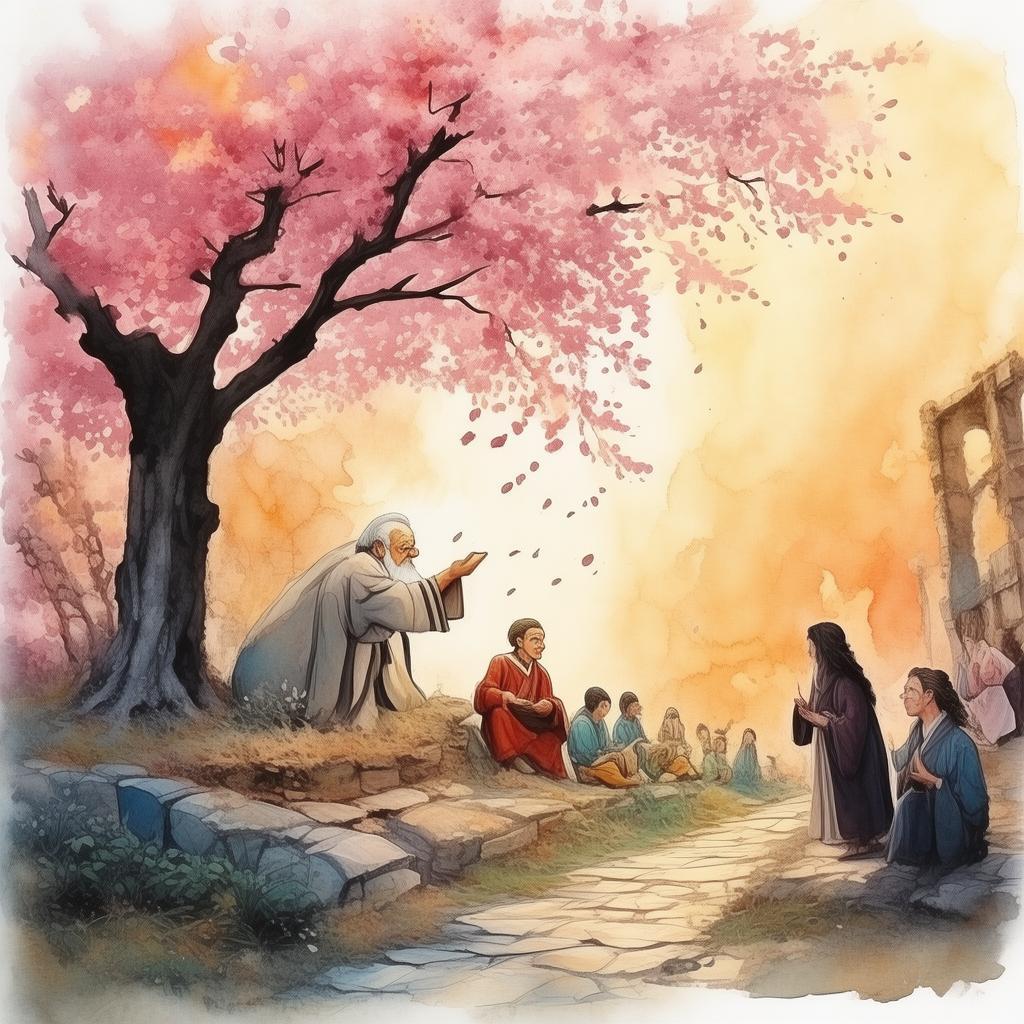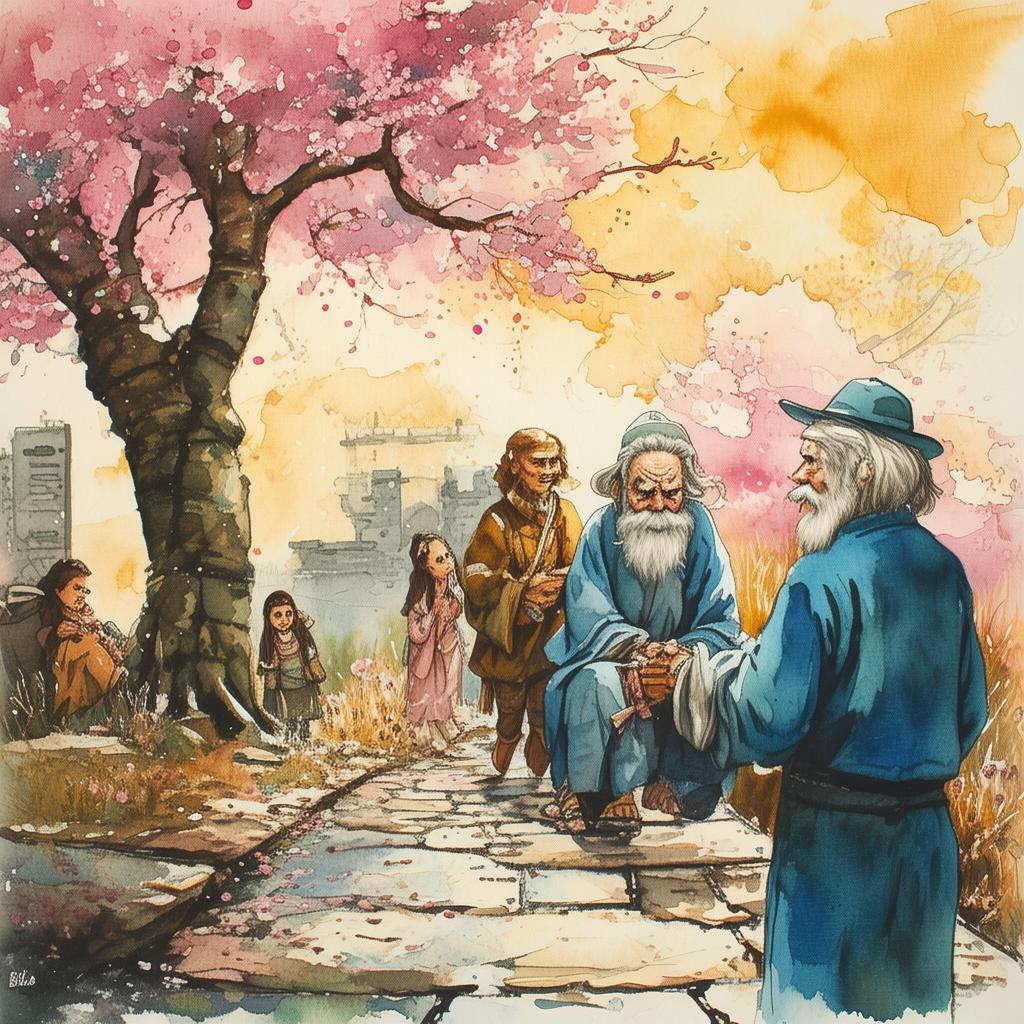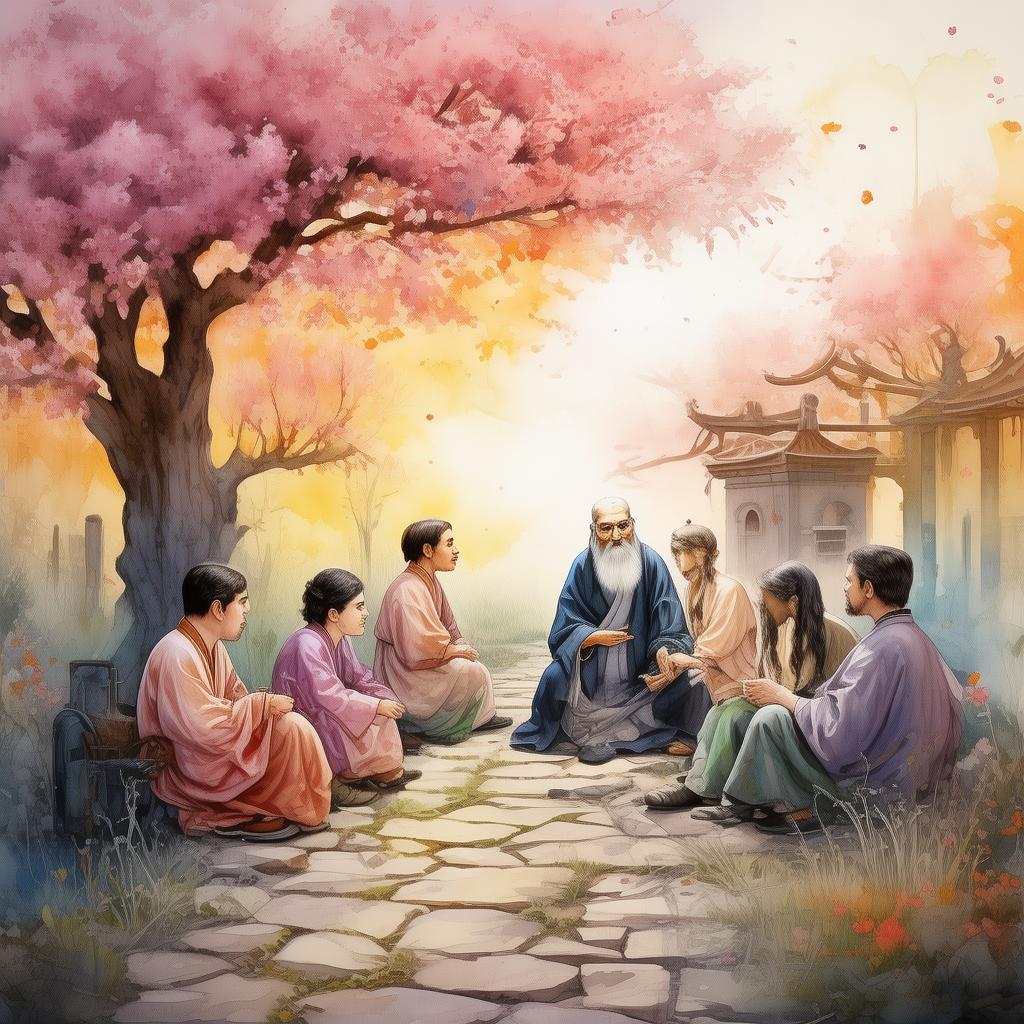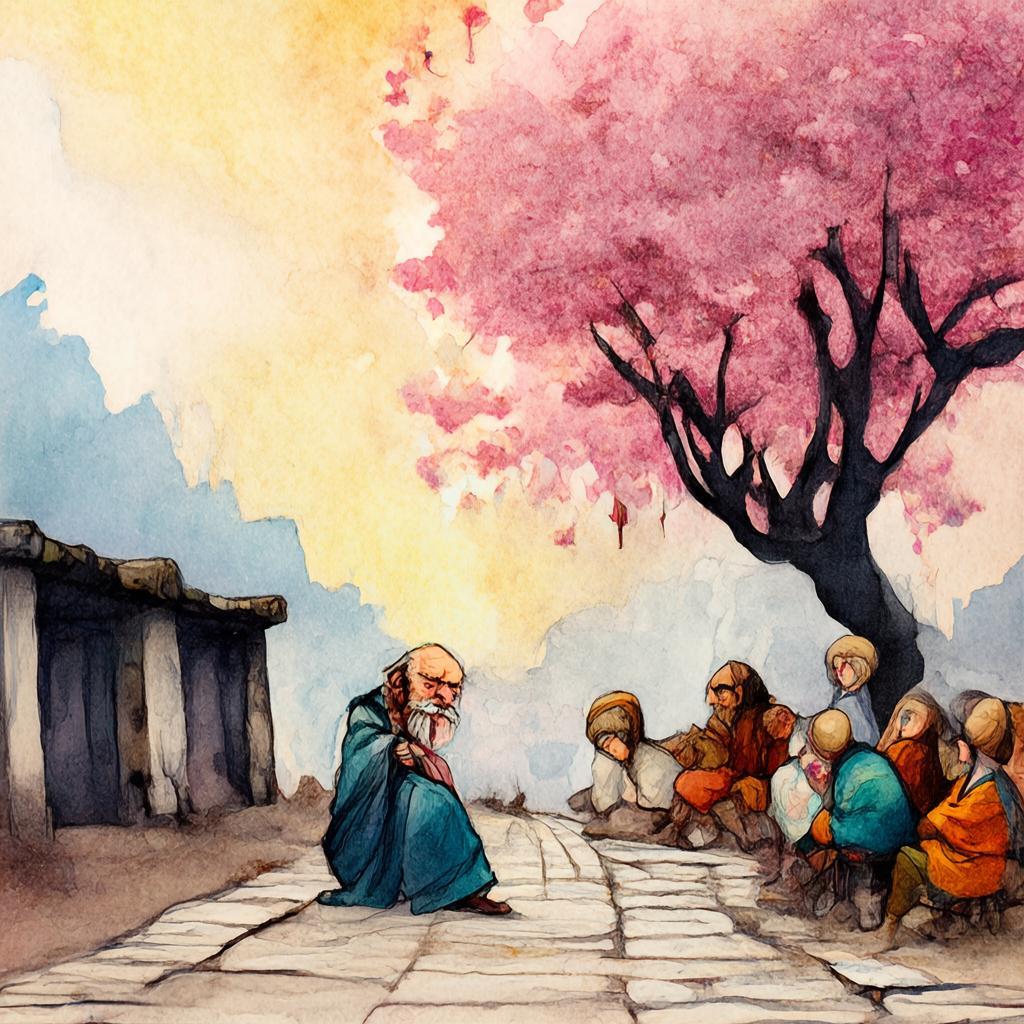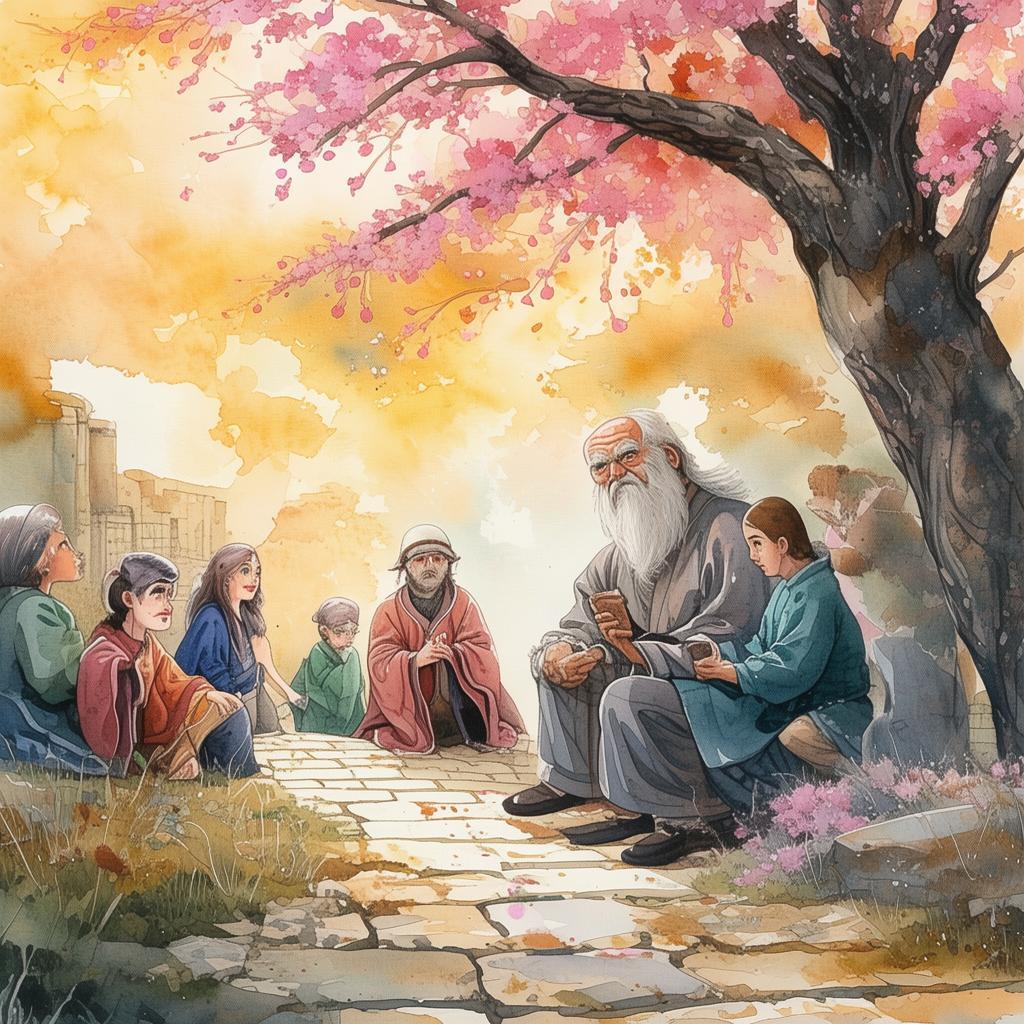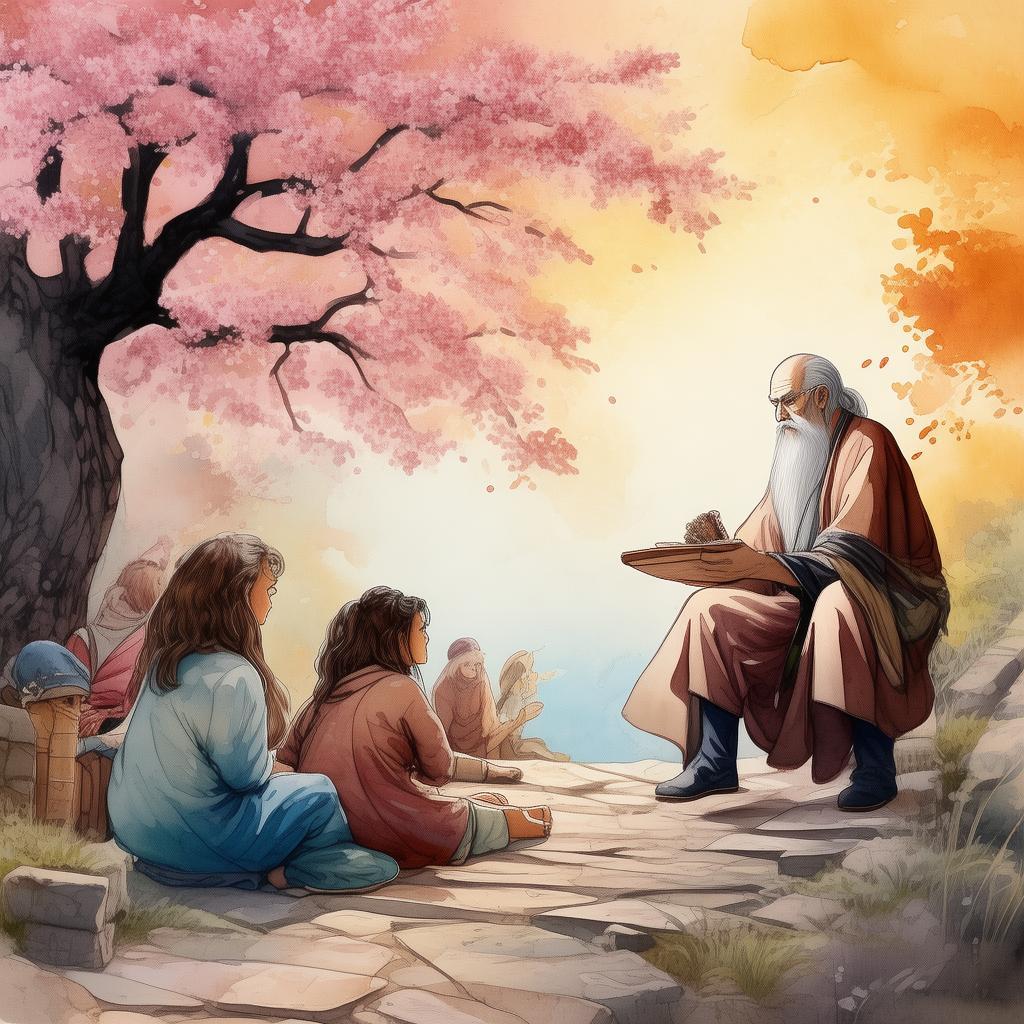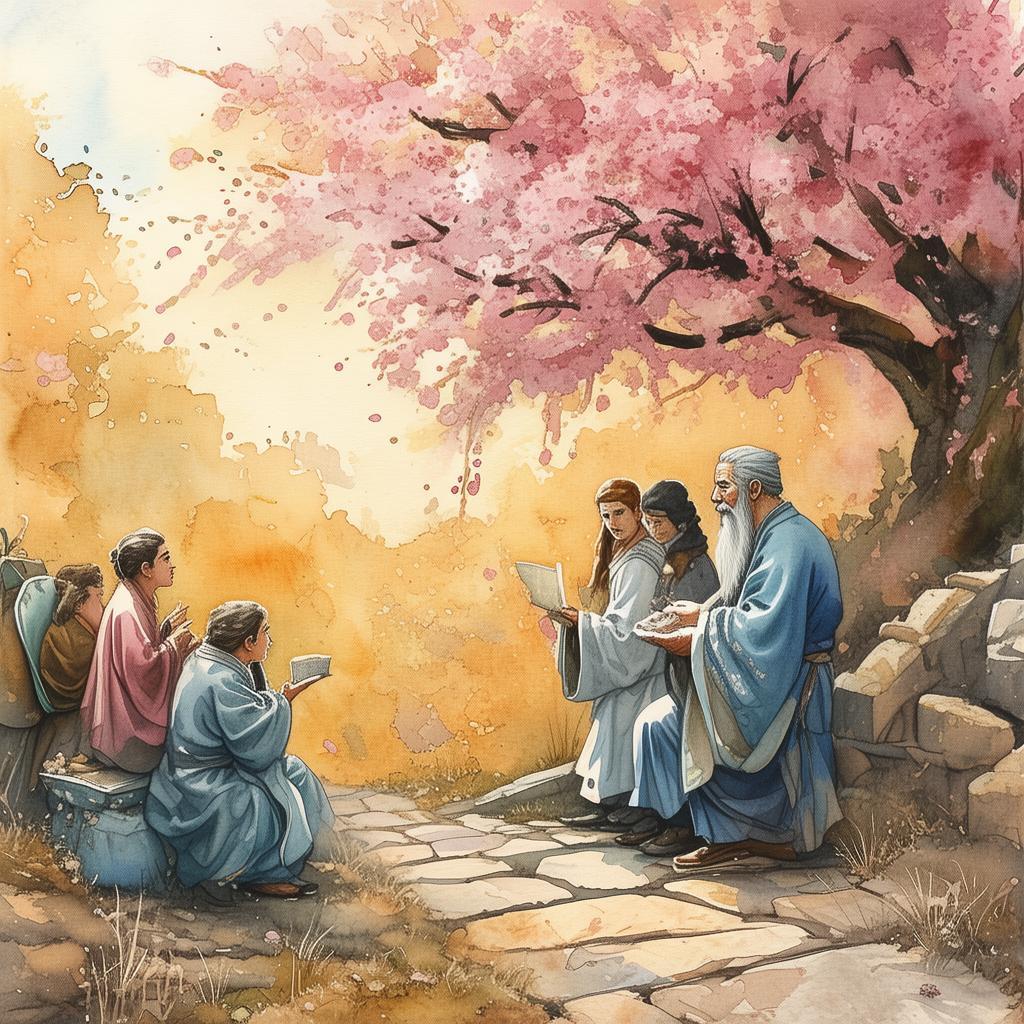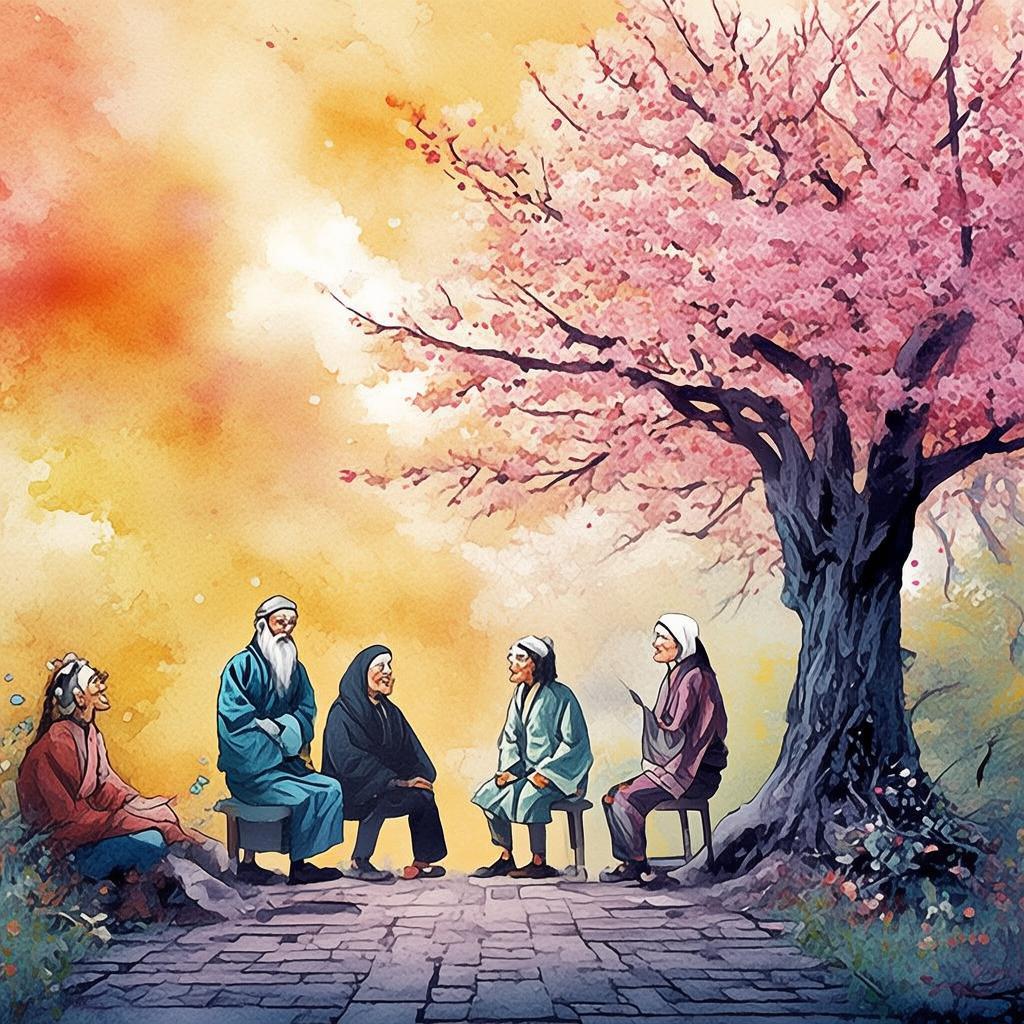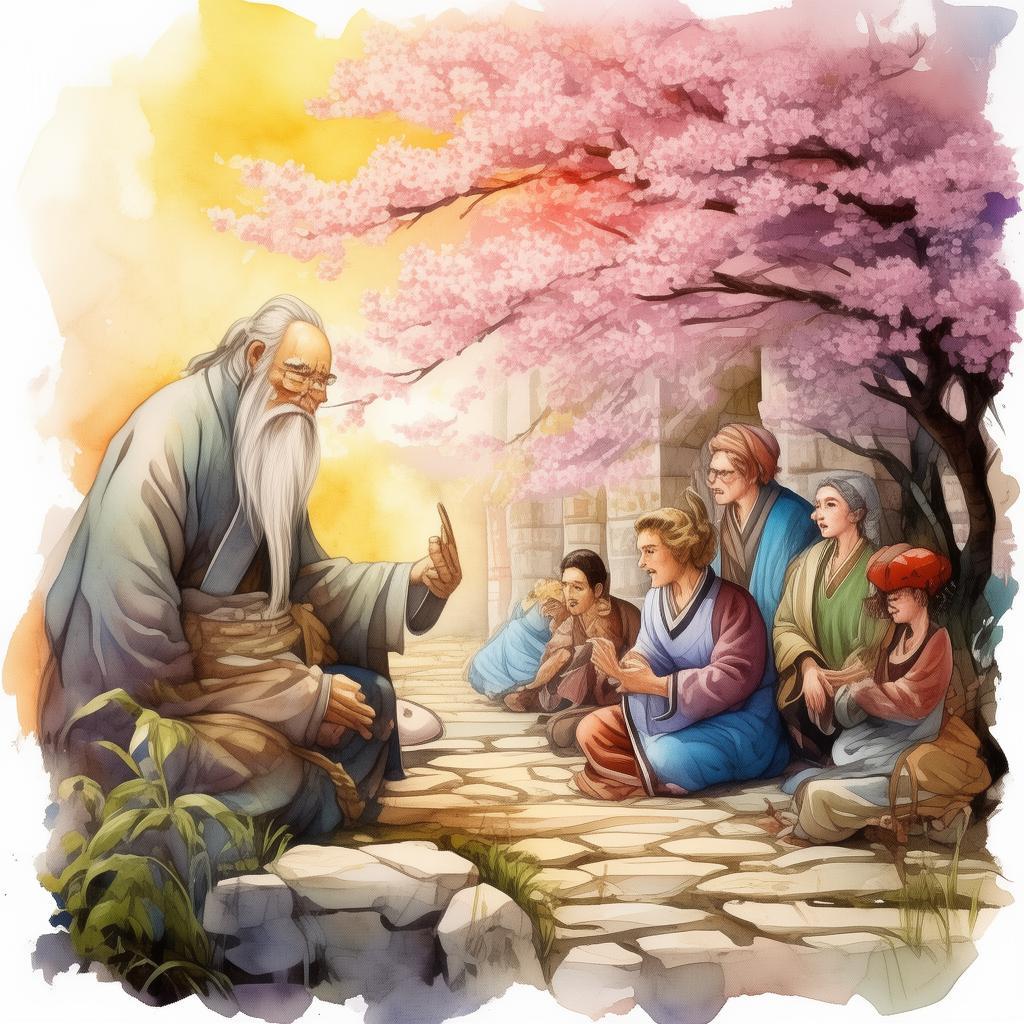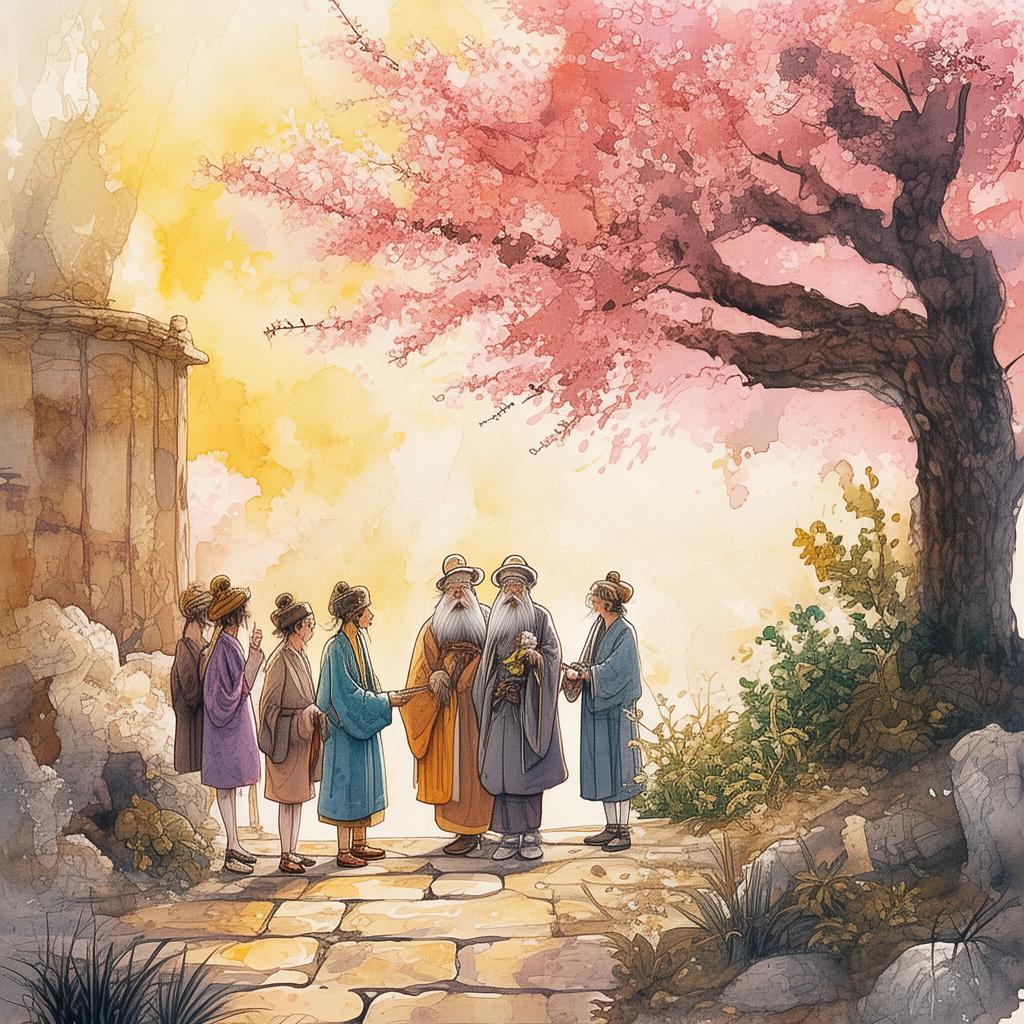The Quest for the Perfect Poem
In the heart of a bustling city, where the cacophony of life seemed to echo the dissonance of the modern world, there lived a young poet named Lin. His name was whispered among the literary circles, a name that carried the weight of his unyielding quest for the perfect poem. Lin's mind was a labyrinth of thoughts, a wasteland of his own creation, where every word he penned was a battle against the chaos that surrounded him.
Lin's journey began in the shadow of his mentor, the great poet, Master Yuan. Master Yuan's words were like a beacon, guiding Lin through the treacherous waters of his own creativity. "The true poem," Master Yuan would say, "is not one that seeks to please, but one that seeks to understand the essence of the human condition." These words became Lin's mantra, his guiding star in the endless night of his quest.
As years passed, Lin's poems grew more intricate, more complex, each one a testament to his relentless pursuit of perfection. Yet, he felt a growing emptiness, a void that could not be filled by the adoration of his readers or the praise of his peers. He was a wanderer in a wasteland, searching for a path that did not exist.
One day, as Lin wandered through the city's markets, he stumbled upon an old, tattered book. The cover bore the title "The Waste Land" and the name T.S. Eliot. Intrigued, he opened the book and found himself drawn into the labyrinthine world of the poem. The lines resonated with Lin's own struggles, and he felt a strange kinship with the poet's lament.
"The Waste Land" spoke of a world that was broken, a world that was searching for something, anything, that could fill the void. It was a mirror to Lin's own soul, and he found himself unable to put the book down. He read it over and over, each time finding new layers of meaning, new echoes of his own quest.
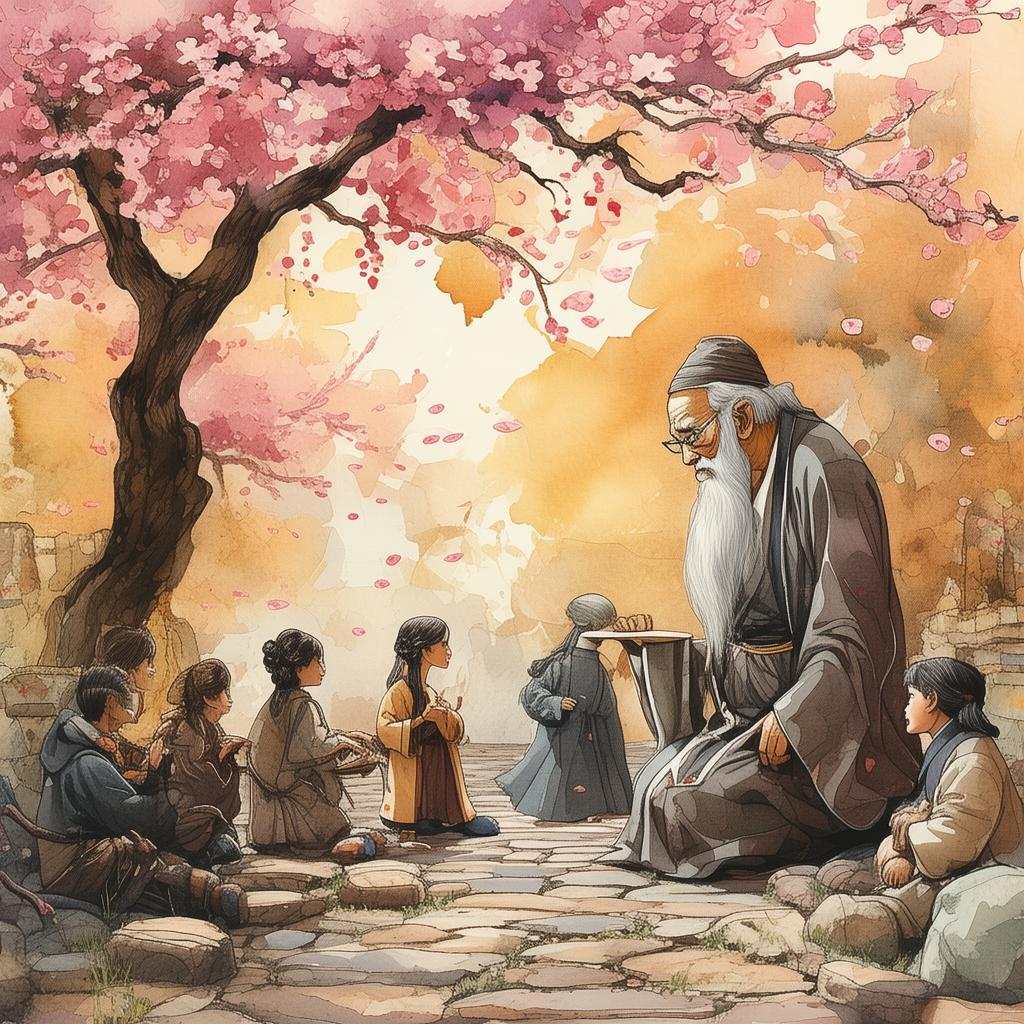
Inspired by Eliot's words, Lin decided to embark on a new journey, a journey that would take him far from the city's clamor. He would seek out the beauty and the pain that lay hidden in the world, the raw, unfiltered emotions that were the essence of life itself.
He traveled to the mountains, where the air was crisp and the silence was profound. He walked through the forests, his heart heavy with the weight of his quest. He spoke to the wind, to the trees, to the animals, seeking the truth that they held within their bones.
One evening, as the sun dipped below the horizon, casting a golden glow over the landscape, Lin sat down by a stream. He took out his notebook and began to write. The words flowed from his pen as if guided by an unseen hand. He wrote of the beauty of the world, of the pain that accompanied it, of the quest for something greater than oneself.
As he wrote, Lin felt a shift in his perspective. He realized that the quest for the perfect poem was not about creating something that would be praised by others, but about creating something that would resonate with his own soul. He understood that the true poem was not a finished work, but a journey, a constant quest for understanding and self-discovery.
The poem that Lin wrote that night was not a masterpiece by the standards of the literary world, but it was a masterpiece to him. It was a reflection of his soul, a testament to his journey, and a celebration of the human experience.
Lin returned to the city, his heart lighter, his mind clearer. He continued to write, but now with a new perspective. His poems were still complex, still intricate, but they were also more honest, more vulnerable. They were a reflection of his growth, of his journey through the wasteland of his own creation.
And so, Lin's quest for the perfect poem continued, not as a search for a single, definitive work, but as a search for the truth within himself, a truth that he knew would always be a work in progress.
✨ Original Statement ✨
All articles published on this website (including but not limited to text, images, videos, and other content) are original or authorized for reposting and are protected by relevant laws. Without the explicit written permission of this website, no individual or organization may copy, modify, repost, or use the content for commercial purposes.
If you need to quote or cooperate, please contact this site for authorization. We reserve the right to pursue legal responsibility for any unauthorized use.
Hereby declared.
